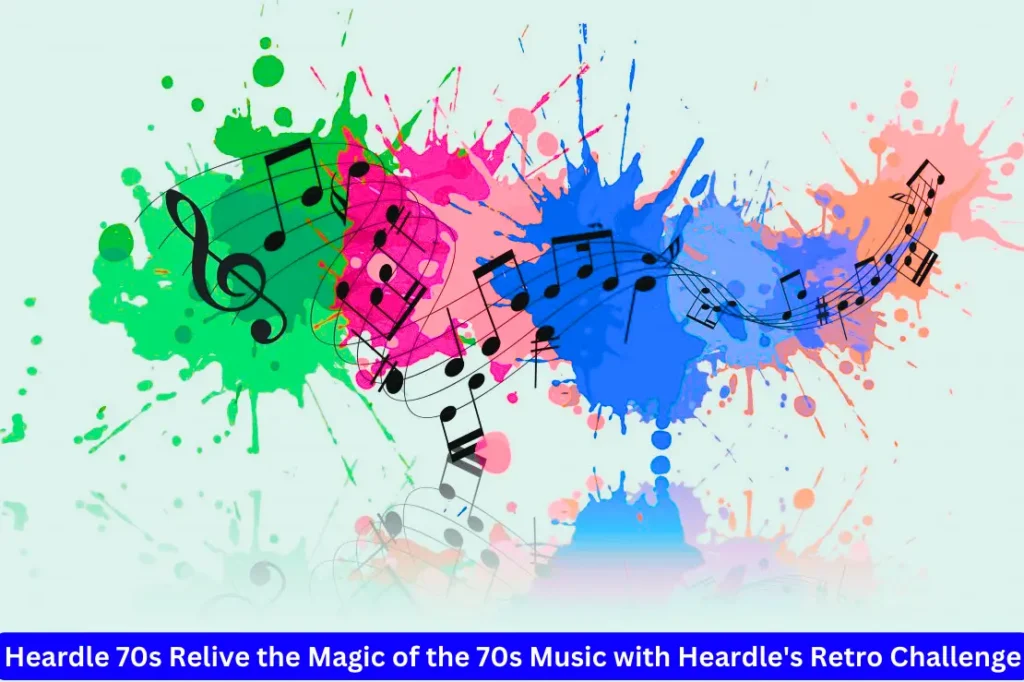The Heardle 70s was a decade rich with musical experimentation and cultural shifts. As the musical landscape transitioned from the psychedelic rock of the 60s to the varied sounds of the 70s, including disco, punk rock, and early forms of hip-hop, there was no shortage of influential tracks that defined this era. Enter Heardle 70s—a digital game designed to test your knowledge and appreciation of 70s music through a fun, interactive guessing game. This game is a delightful challenge for those who lived through the decade and a portal for younger generations to experience the diverse sounds that the 70s offer.
The Rise of Music Recognition Games
In recent years, music recognition games like Heardle have surged in popularity. These games are simple yet addictive, offering a daily challenge to identify a song from a few seconds of its intro. Each day, players are presented with progressively more extended snippets of a mystery song until they can guess the track or opt to see the answer. This format tests musical knowledge and deepens the listener’s appreciation for the song’s nuances.
How Heardle 70s Stands Out
Heardle’s 70s distinguishes itself by focusing solely on the music from the 1970s. It caters to a niche but passionate audience: those with firsthand memories of the decade and younger fans of retro music. The game’s library spans various genres from the 70s, reflecting the decade’s musical diversity—from the smooth melodies of soft rock to the energetic beats of disco and the raw energy of punk.
Educational Benefits and Nostalgic Appeal
One of the key appeals of Heardle’s 70s is its educational value. For educators and parents, the game is a gateway to discuss the history of music, critical cultural events of the 70s, and how these influenced the music of the time. It provides an engaging way to introduce young people to influential artists and seminal tracks, sparking conversations about musical innovation and the evolution of sound.
For those who experienced the 70s firsthand, Heardle’s 70s offers a nostalgic journey back in time. It’s a daily reminder of the songs that might have played at their prom, blared from their car radios, or spun on their turntable at home. This nostalgic element makes the game emotionally resonant and turns each guess into a trip down memory lane.
Challenges and Strategies in Heardle 70s
Playing Heardle 70s can be challenging, as the decades-old tracks might not be as immediately recognizable as contemporary hits. To excel in the game, it’s helpful to familiarize oneself with the key artists and songs of the decade. Listening to 70s playlists, exploring various genres, and understanding the context in which these songs were released can significantly enhance the player’s chances of success.
Impact on Music Streaming and Discovery
Heardle 70s also impacts how we consume music today. By featuring tracks on major streaming platforms, it increases the streams of 70s classics and introduces them to a broader audience. This resurgence of interest can lead to the rediscovery of lesser-known artists or a more profound exploration of a genre, enriching the listener’s musical landscape.
Community and Social Sharing
An integral part of the Heardle 70s experience is its community aspect. Players often share their daily scores on social media, sparking discussions and friendly competition among friends. This social sharing amplifies the game’s reach and can lead to viral moments, mainly when a particularly obscure or beloved song is featured.
Future of Heardle 70s
Looking forward, the potential of Heardle’s 70s is vast. The creators can expand the game’s scope by incorporating themed weeks, featuring specific sub-genres or spotlighting influential 70s musicians. Collaborations with artists’ estates or record labels could enhance the game’s authenticity and appeal.
Conclusion
Heardle 70s is more than just a game—it’s a celebration of 70s music wrapped in a modern digital experience. Whether you’re a die-hard fan of the decade or a casual listener eager to explore, Heardle 70s offers a daily dose of fun, education, and nostalgia. As it continues to engage and challenge players, it serves as a vibrant reminder of the enduring impact of 70s music on today’s cultural landscape.


